Faculty Exodus at Patrick Henry College
Patrick Henry College is back in the news, with a piece in Friday’s WaPo entitled, “5 Professors Quit Religious School.” The headline is actually much more tame than the content:
Nearly a third of the faculty members at Patrick Henry College in Loudoun County are leaving the school because of what they described as limitations on their academic freedom, causing unusual introspection at the politically connected Christian liberal arts college.
They claim that Patrick Henry College, established in 2000 to attract academically gifted home-schoolers with the hope of send them on to work on Capitol Hill or at the White House, does not value equally both parts of its mission: to offer students a strong biblical perspective while educating them according to a classical liberal arts curriculum. In one case, the professors said, faculty members were reprimanded for writing that the Bible “is not the only source of truth.”
“I’m leaving the college because I want freedom,” said David C. Noe, assistant professor of classics. He said he came to Patrick Henry in its first year expecting to find “a liberal arts college that will be the new Ivy League” — as the school bills itself — but instead found a place where classical works by non-Christian authors are sometimes considered suspect and where there is an increasingly narrow view of Christianity.
The departure of five of the school’s 16 full-time professors follows the forced resignation last year of Jeremy Hunley, a library clerk who promoted the idea that baptism is essential for salvation, a violation of the 10-point statement of faith that all faculty members and students are required to sign when they come to Patrick Henry. According to the statement, and to many evangelical Christians, salvation is found only through faith in Jesus Christ.
The rebellion reflects the recurring tension at many Christian colleges between adherence to articles of faith and the free-ranging spirit of academic inquiry. Some departing faculty, alumni and students say it calls into question the future of a college that was established as an “evangelical Ivy League” that would prepare conservative Christian students for influential positions in government.
College President Michael P. Farris, a lawyer and home-schooling advocate who founded the Purcellville school, said Patrick Henry is a place that encourages “a free flow of ideas” beyond some core principles on which everyone must agree — principles such as the existence of God and Satan and the infallibility of the Bible. [emphasis added]
The “infallibility of the Bible” is a rather sweeping bedrock principle for a university, no? It rather obviates the entire science curriculum, for starters.
But Noe and government instructor Erik S. Root, who is also leaving, said that they have encountered additional “arbitrary limitations” set by the president when they raised issues that do not contradict the belief statement. Root said his contract was temporarily withdrawn this spring in part because of an article he wrote for a school publication about a Christian saint that prompted the president to question his loyalty to a biblical worldview. In a letter to Root, Farris questioned whether Root shared the views of a Darwinist he had quoted. Root called Farris’s concerns “guilt by association.”
Noe co-authored an article in March arguing that the Bible is not the only source of truth and that students can learn valuable lessons from non-Christian writings. The 900-word story led to a 2,600-word response by the chaplain — endorsed by the administration — detailing its “harmful implications” and saying it “diminished the importance of” Scripture. Noe, who has been ordained by the Orthodox Presbyterian Church, said that the article was not meant to challenge the Bible but to defend liberal arts.
So, even indicating that one has read the work of an author who is not a biblical literalist is cause for concern at this school. But, aside from small things like that, academic freedom and scholarly inquiry are encouraged!
Longtime OTB readers may remember that Patrick Henry College was founded as a place for home schooled Christian fundamentalists to come and get groomed for jobs on Capitol Hill and the White House. It has, in that regard, been rather successful for such a small school.
When even Orthodox Presbyterian ministers are too secular for the faculty, something’s wrong. Many private, religiously funded colleges and universities require faculty to submit essays on their religious beliefs and even to sign what amount to loyalty oaths. Places like Baylor University, for instance. But many of those places are nonetheless excellent institutions because they allow professors a fairly wide berth of latitude in their teaching and scholarship.
It’s doubtless true, too, that, as Stanley Fish has long argued, there is what amounts to a secularist loyalty oath at many universities.
“Academic freedom,” he writes, “rather than being open to all points of view, is open to all points of view only so long as they offer themselves with the reserve and diffidence appropriate to Enlightenment decorums, only so long as they offer themselves for correction.” Adherents of academic freedom claim to be liberals, Fish argues — but confront them with an extreme idea, such as the idea that God exists and his truths are real, and liberals try to drive it out of their world. Liberalism is not neutral and above the fray but active, taking one side in a battle over what should or should not be taught in the university.
[…]
These arguments contain some truth. There are political-science departments at elite universities that will not hire anyone unwilling to subscribe to rational-choice theory, just as analytically trained philosophers do not like to hire Continental philosophers and vice versa. To be sure, no formal statements of faith have to be signed, but there are all kinds of ways — from the jargon applicants use to the journals in which they publish — in which commitment to a particular orthodoxy can be established, and hiring committees will look with suspicion on any deviation from whatever happens to be prescribed.
Still, these universities take in students of all stripes, most of the classes eschew any discussion of religion, and students who are raised in religious faith tend to emerge with it intact if not strengthened. While American higher education may indeed be somewhat hostile to religion, we still live in easily the most religious society in the Western world. By contrast, places like Patrick Henry require an extreme orthodoxy among its faculty, staff, and students.
Even that wouldn’t be particularly troubling, though, if it weren’t for the fact that its graduates are being eagerly sought after for prestigious internships at the White House and on Capitol Hill. Students who grow up home schooled by the kind of parents who would send them to such a school may well be quite bright; for them to emerge as well rounded citizens, though, would be miraculous indeed.
________
Related articles:

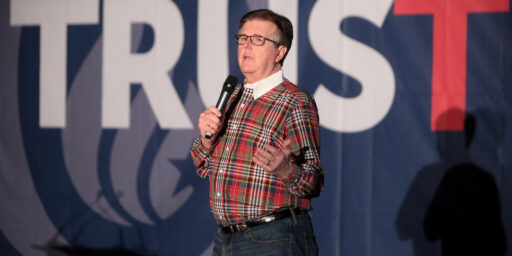
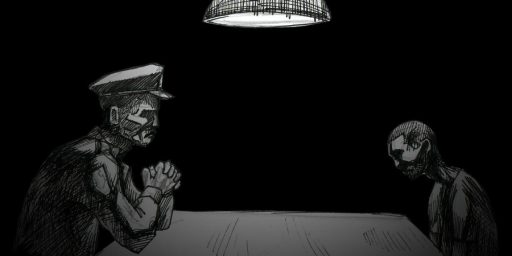
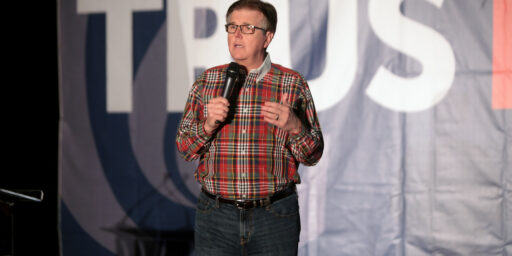
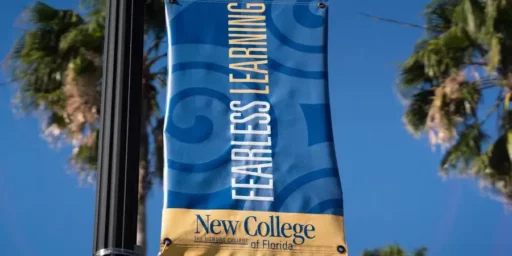
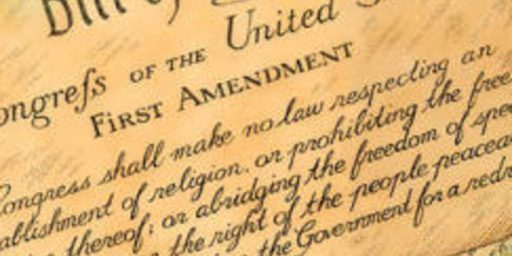
Not for one that claims a strong Christian identity, and is true to that claim.
Which leads us into the comment about “when even orthodox Presbyterian ministers don’t fit” , or words to that effect;
Have you been watching the arguments within the Presbyterian church these last few years?
Liberal donkey trainers fighting for their right to lie, what a noble cause, whats the world coming to when you can’t even teach the bullsh-t you make up and have your little pointless way! What a horror when you can’t force everyone to be as Godless and stupid as you Know they should be, CRY HAVOC AND LET SLIP THE DOGS OF PUNK BITCHING!!!!!!!
Infallibility is usually not synonymous with inerrancy, which would invalidate the science curriculum. Infallibility generally refers to a sense that everything in the Bible was put there for a reason by God, although that reason may not be literal truth (such as a 6-day creation). Inerrancy would, however, hold such a standard.
I found Mr. Joyner’s article about Patrick Henry College to be quite interesting, particularly his apt observation that many so-called secular universities require their own “loyalty oaths”.
It was not until he reached his punchline with such obvious relish:
>Students who grow up home schooled by the kind of >parents who would send them to such a school may >well be quite bright; for them to emerge as well >rounded citizens, though, would be miraculous >indeed.
that I realized the poverty of his soul and his experience.
As a homeschooling father I can speak very confidently when I assert that Mr. Joyner’s anti-Christian bigotry is showing, and it is quite ugly. I advise Mr. Joyner to take some remedial coursework for a semester or two at Patrick Henry College. I am quite certain he would matriculate with a far different view than the erroneous one he now holds. And he might be asking about tuition costs for close family members…